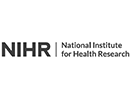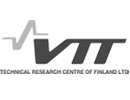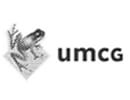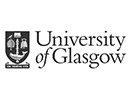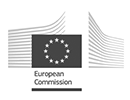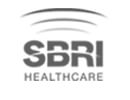Faster, simpler diagnoses
Improving Efficiency and Patient Experience
Manus Neurodynamica is radically innovating health care management in the emerging field of diagnostics for neuromotor impairments, initially in Parkinson's Disease.
Our principal product, the Neuromotor Pen™ for the diagnosis and monitoring of neuromotor impairments, is a non-invasive, patented technology that records and analyses upper-limb and hand motion to assess the underlying neuromotor processes, particularly for patients with Parkinson's Disease.
The device enables users to distinguish PD patients from elderly patients with a benign deterioration win motor skill with a diagnosis accuracy of 90% - enabling early intervention which is vital to successful treatment outcome.
The user can also distinguish between PD and other neuromotor impairments, such as Essential Tremor (ET) with an accuracy of at least 78% - avoiding misdiagnosis generating clear cost and patient benefits.

Traction
- Second generation product available.
- The device is produced by the leading global manufacturer in the space, Schwan-Stabilo.
- Manus holds strong IP protection.
- Granted patents in UK, US and Japan and clear roadmap for software protection.
- First commercial sales agreement signed with Cambridge Cognition to supply the academic and pharmaceutical research market.
- Manus has retained rights to all clinical uses.
- £2.8 million in external non-diluting grant funding to date, including Phase I Small Business Research Initiative (SBRI) project.
- Direct access to the US market with a US satellite office in Boston MA, led by Company Director, Richard Hermon-Taylor (ex-Managing Partner Boston Consulting Group and former Vice President at Symmetrix Inc.) who is based in the US with 40 years experience in the health tech and bio sectors.
We are looking for interested researchers, clinicians and practitioners to assist with in situ assessment and testing of our technologies, as well as potential investors for the further development of our projects.
History
Manus Neurodynamica was established in 2008 with the aim of commercialising practical applications in neuroscience and launching these into the healthcare markets. In the same year, the founder embarked on the opportunity to develop a brand-new disruptive technology for deployment within the clinical assessment market sector for early diagnosis of Parkinson’s disease. A convertible loan from Northstar along with an R&D grant from One North East was awarded for a proof of concept study, which delivered the first prototype and promising clinical pilot results.
In 2009 the Company instigated the DiPAR project for which the European Commission awarded 1.4 million Euros. The Company developed the funding bid and provided the scientific content with R&D plan and took responsibility for consortium and finance management as well as commercialisation planning. The multi-disciplinary team of tech business owners, academics and clinicians worked together for four years to deliver a fully functional pen-like, hand-held device with a novel sensor system for recording discerning biomarkers of Parkinson’s prototypes. During that time several clinical validation studies were completed that were published in peer-reviewed journals.
Following the DiPAR project, the R&D was continued with funding from Innovate UK, the Academic Health Science Network, Scottish Enterprise and additional private investment. The NeuroMotor Pen product was further developed for improved handling, robustness and ease of manufacturing. A full manufacturing setup has since then been established with QMS procedures with the Pen component being manufactured by Stabilo. A Medical CE class I mark was obtained. The first adopters started purchasing the NeuroMotor Pen.
The clinical validation was continued against the current best practice diagnosis of clinical opinion along with DaTSCAN. Based on the high-level accuracy of the clinical validation to date, as well as a successful reproducibility study, the company and clinical advisors are confident that the products will be disruptive to the current clinical healthcare practices for Parkinson’s disease. Our latest clinical trial has recorded an accuracy (PD vs not PD) of 78% in hard to diagnose patients, with sensitivity and specificity being 80% and 75%, respectively.
Clinical trials are continued within the NHS (UK) and further trials in the Netherlands, Luxembourg and the US are anticipated shortly.
Manus has also initiated investigations into the application of the device for the optimisation of antipsychotic drug intake. The side effects of antipsychotic medication sometimes lead to ‘Parkinsonism’, which are movement abnormalities that mimic the motor symptoms of Parkinson’s disease, but that isn’t caused by Parkinson’s (i.e. not by a ‘dopamine deficit’ in the brain).
In a pilot study, the patients’ motor skill before and after taking anti-psychotic medication was rated with the NeuroMotor Pen biomarkers. The aim was to see if identifiable changes can help provide information about optimal dosage and assist with the monitoring of side effects.
The pilot study has already shown very encouraging results and for the first time in 30 years, the threshold for motor side effects may be determined with the NeuroMotor Pen. It is anticipated that optimising treatment with antipsychotics will become an important additional field of application.
It is envisaged that the product would ultimately be deployed in the community and outpatient settings and may subsequently be used to help to monitor the side effects of other types of medication.
Investors





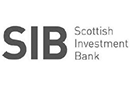
Make a difference today
Our disruptive technology has the potential to be used across many applications such as screening and triage, diagnosis, drug treatment optimisation, drug development, rehabilitation and research to improve our understanding of neuromotor impairments. We are keen to continue collaborating with interested researchers, clinicians and practitioners on our research in different areas, as well as businesses for further development and rolling out the existing and new products worldwide.
Collaborators



